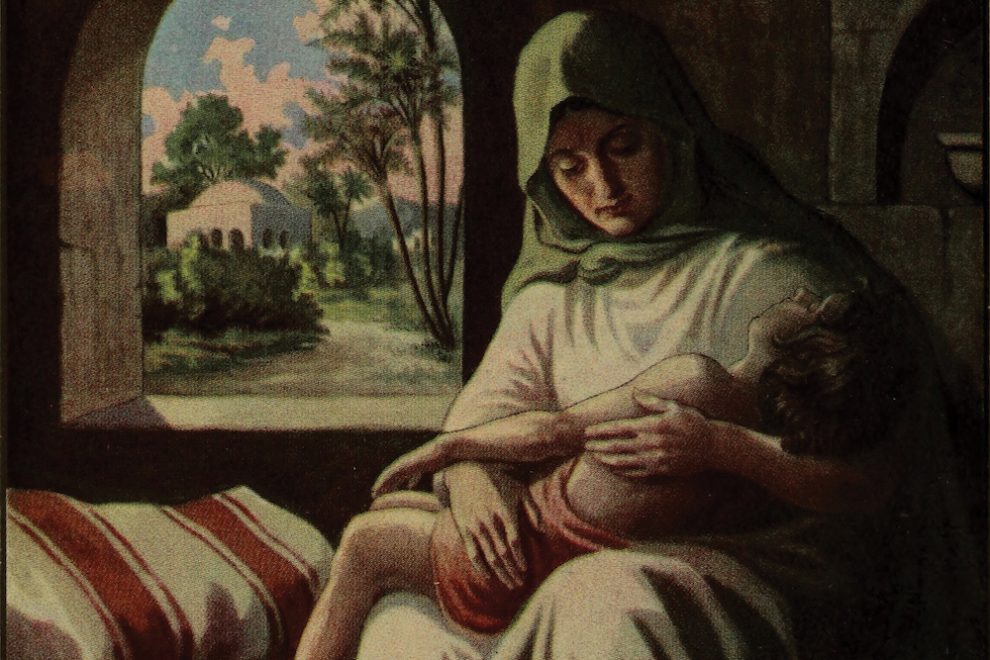Most folks wouldn’t name the Books of Kings among their go-to reads. Why not? The Books of Kings are cool! Not because of the kings, necessarily, but because of the prophets.
Keep in mind the fundamental principle of biblical monarchy: Kings have their prophets and prophets their kings. These two occupations ride a tandem bicycle in scripture. They don’t go out for a spin alone, and if they don’t work together, a crash is imminent.
Alas, they almost never work together. The crash is generally a foregone conclusion.
So if you like a good train wreck, the Books of Kings are a great read. If you love voices speaking truth to power and not being shy about it, the books are wildly entertaining.
If you like a good train wreck, the Books of Kings are a great read.
Still, as much as I enjoy prophets divinely sticking it to the powers that be, I’m also fascinated by the characters inhabiting the space around these royals and seers. The saga’s not just about the tandem cyclists trying to keep the wheels of history from wobbling off in different directions. It’s also about little people—women and children and lepers and the poor—struggling to keep heart and soul together in realities quite removed from palaces, their fates riding on what’s decided in the hallowed halls.
Like the Shunammite woman, for example, in 2 Kings, Chapters 4 and 8. We don’t know her name, like so many women of scripture and history. Yet she’s described as a person of influence. Translation: She’s got money. Interestingly, she has a husband
who’s not portrayed as influential, merely as elderly. In his advanced years, it seems he’s turned over his fortune to his wife’s administration.
In their relationship, the wife is the decider. They live along a well-beaten path, most particularly traveled by the prophet Elisha, who comes and goes through the district. The Shunammites know about the wonders this holy man has performed. Being a person of faith as well as influence, the woman offers Elisha supper as he passes by. It must have been a good spread: Elisha makes it a habit to dine there often after that.
The woman then tells her husband—tells, not asks—that it would be a good idea to add an upstairs to their home so the prophet has a permanent guest room with them when he’s in town.
It’s a big project, and she’s clearly thought this through. The seer’s quarters will include a bed, table, chair, and lamp. This isn’t a matter of throwing down a mat on the floor, as one does for less-than welcome visitors whom one hopes will move on shortly. Has someone ever built an extension on their home for your exclusive use? Me neither. This is a massive display of welcome. The Shunammite intends to make this seer part of the family.
The Shunammite asks nothing in return. Her hospitality is wide and free. Elisha determines to deliver her heart’s desire nonetheless: a son by her aging, and so far nonproductive, husband. At the prophet’s word, God speedily grants the Shunammite this blessing.
Before the chapter’s end, however, tragedy strikes. The child, now old enough to accompany his father on bring-your-son-to-work day, is stricken by heatstroke in his father’s extensive fields. He’s carried home to his mother and dies in her lap.
These stories are included to show us that any account of leadership must necessarily include the saga of the poor.
This protracted story about a couple and a traveling prophet, tables and chairs and lamps, and a miracle son and his short life, is recounted in a book about kings. There’s not a crown in sight throughout this chapter—which includes riveting tales of a poor widow whose children are about to be sold into slavery, a poisoned stew served in a time of famine, and a miraculous multiplication of barley loaves.
These stories are included to show us that any account of leadership must necessarily include the saga of the poor. You can’t talk about Washington, D.C. without also telling the tales of places like Flint, Michigan and Ferguson, Missouri. You can’t evaluate the halls of power without considering the crisis on our southern border, the perilous cost of medicine and health coverage, or what it means to be living on a reservation without running water or adequate shelter.
The prophet knows what to say to the king precisely because he’s also attuned to the cry of the poor. So yes: The Books of Kings contain plenty of stories of palace intrigue, military battles, and mundane legislation. But they also involve narratives of ordinary people in need, in places most powerful people have never stepped foot.
Now back to the story. The bereft mother lays out her dead boy on the bed upstairs reserved for the prophet. “It will be all right,” she tells the servant, who questions her decision to ride out to see the prophet at this unusual time (2 Kings 4:23). When Elisha sees her riding toward him in the distance, he sends his servant to inquire about her family’s welfare. She replies, “It is all right” (2 Kings 4:27).
All shall be well, Julian of Norwich famously said. All manner of things shall be well. But as we know, all is not well with the Shunammite, who has just suffered an excruciating loss. She claims all is right because of her remarkable faith. She approaches Elisha with the confidence of so many others who, nine centuries later, will come to Jesus seeking his mercy. Yet the Shunammite isn’t soft in her demands on the holy man: “As the Lord lives, and as you yourself live, I will not leave without you” (2 Kings 4:30).
The child is restored. But that’s not the end of the story.
In most biblical healings the restored person walks away whole and into the mist of history. Four chapters later, however, we meet the Shunammite woman again. She’s remained friends with Elisha. He now warns her that a seven-year famine is coming on the land, and she must flee ahead of it with her family. Abandoning her property, she removes her household to Philistine territory.
It is indeed all right in the end for this woman of faith.
Seven years later we encounter Elisha’s servant in the palace of the king of Israel. Finally! In this story of kings, one actually surfaces. The servant, a rather self-serving guy, is boasting to the king about all the wonders Elisha has performed. Just as he’s recounting the miracle of the restored child, in walks the Shunammite, home at last from Philistia. She wants her property back. The king, impressed by the aura bestowed on her in the story he’s just heard, not only restores her land but also pledges to return the seven years of revenue her land accrued while she was absent.
It is indeed all right in the end for this woman of faith. This little story about beds and suppers, hospitality and dreams, is finally about one woman’s trust that all will be well if she follows God’s prophet’s directives. While faith didn’t keep misfortune away—her son did die, the famine did come—in both cases, these reversals of fortune led to restoration.
The obscure path from a nameless woman’s hopes for her family to the very pinnacle of worldly power ran straight through the authoritative words of a prophet. It makes us hunger for such prophets in our day, to connect the dots between every mother and every king.
This article also appears in the August issue of U.S. Catholic (Vol. 85, No. 8, pages 47-49). Click here to subscribe to the magazine.
Image: Wikimedia Commons
















Add comment